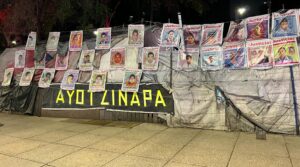The Bush Administration’s security cooperation package for Central America, part of the Mérida Initiative, correctly identifies crime and violence as key problems in Central America but its specific funding priorities are misguided, said WOLA’s Geoff Thale to Congress today at a hearing of the Western Hemisphere Subcommittee of the House Foreign Affairs Committee.
Funding for the plan should be refocused to strengthen police investigative capacity in Central America, with an aim toward taking down the drug kingpins, corruption networks and organized crime that plague Central America, said Thale, WOLA’s director of programs.
On drugs, Merida’s funding priorities are askew, said Thale. The package focuses too heavily on supporting interdiction efforts that are not likely to succeed in stemming the flow of drugs so long as U.S. consumption remains strong.
He called for a bolstered commitment to cut drug demand in the United States as a necessary step toward easing drug-related violence in Central America, which, Thale pointed out, sits between the main drug producing countries in the Andes and the main consumer: the United States.
The Bush Administration announced last October the Mérida Initiative, which, after discussions with the Central American presidents, included $50 million for its Central America component. The White House asked for a further $100 million as part of the Foreign Operations Appropriation bill for fiscal year 2009.
Mérida includes also a much larger aid package for Mexico. Today’s hearing, chaired by Rep. Eliot Engel of New York, focused on the Central American component.
Thale also addressed the critical issue of youth gang violence in the Central American countries. The Mérida plan takes “important steps in the right direction” against gang violence, he said, but its prevention funding was still inadequate. He recommended that the Central American plan devote at least 30 percent of its funding for community-based gang violence prevention efforts over the next three years.
“Best practices in the United States and in Latin America all suggest that nationally funded, but locally designed and community based approaches that involve schools, community agencies and local governments, along with the police, in designing appropriate youth violence prevention programs are the most effective strategies in keeping young people out of gangs,” he told the subcommittee.
For the full text of Thale’s remarks, please click here .
Contact:
Roger Atwood
WOLA Communications Director
ratwood@wola.org

